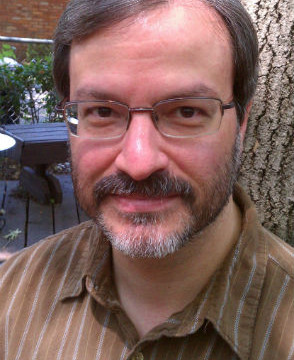Jacob Sullum is an American journalist known mainly for his contributions to Reason Magazine, where he is a senior editor. As he puts it, he covers “the war on drugs from a conscientious objector’s perspective.” His work has appeared in many prominent publications including The Wall Street Journal, The New York Times, National Review, and the San Francisco Chronicle.
He is the author of the 2003 book Saying Yes: In Defense of Drug Use, which takes on the neglected topic of the benefits of illegal drug use. Somewhat similarly to Carl Hart’s recent book High Price, Saying Yes explains the more banal realities of illegal drug use, in contrast to current and historical hysteria on the subject. Drugs covered include marijuana, alcohol, heroin, methamphetamine, cocaine (including crack), MDMA (commonly known as Ecstasy) and LSD. The low rates of addiction or other drug-related harm are a consistent theme throughout the book, and Sullum criticizes the overly dramatic popular conception of addiction.
Sullum is also the author of For Your Own Good: The Anti-Smoking Crusade and the Tyranny of Public Health. This volume deals with modern anti-smoking crusades, as well as discussing the history of tobacco and of campaigns against it. Widespread claims in earlier eras about the effects of tobacco were remarkably similar to propaganda about other drugs, and similarly led to misguided prohibition laws in many US states. While admitting the serious health risks of smoking and absurd attempts by the tobacco companies to deny knowledge of them, Sullum skeptically covers the extreme claims of anti-tobacco campaigners. These include equating the tobacco industry with the Nazis, claiming that secondhand smoke is a significant health risk, and suggesting that smoking has no benefits and is a “disease.” Sullum consistently supports a libertarian view toward health risks and personal responsibility among adults. The following quotes are selected from these two books.
“As mainstream drug policy experts, such as UCLA’s Mark Kleiman, have long conceded, the vast majority of illegal drug users do not become addicts, and the vast majority do not harm themselves or others.” (Saying Yes, 23) 1
“Most people are leery of applying the temperance model [i.e. the concept of moderation] to other drugs because they continue to view these intoxicants the way dry activists viewed alcohol: as a malevolent agent with a will of its own, capable of forcing people to act against their own interests and those of society.” (Saying Yes, 99)
“The evidence indicates that voodoo pharmacology is wrong, that it’s a mistake to think of drugs as magical potions that transform people or force them to sin.” (Saying Yes, 25)
“The assumption that some drugs cannot be used responsibly is one of the biggest obstacles to serious reform. For people who do not believe in the possibility of temperance, the prospect of a world without prohibition will always be too terrifying to consider.” (Saying Yes, 29)
“Confronted by savage, seemingly irrational violence, we are tempted to explain the perpetrator’s behavior by reference to some external force that took control of him. In another age, people might have said that Phillip Hall was possessed by evil spirits. Nowadays, drugs often serve the role that demons once did. Thus, Phillip Hall did not kill his family; crack did. People find this explanation comforting, because it means they do not have to think too much about the dark side of human nature.” (Saying Yes, 193)
“The tobacco companies didn’t fool anyone who didn’t want to be fooled. It would take a smoker’s willing creation of disbelief to escape what has been common knowledge for decades (if not centuries), namely, that smoking is dangerous and hard to give up.” (For Your Own Good, 217)
“Following the money will always be easier than following a line of reasoning or examining a body of data, but this approach is completely antithetical to rational discourse. If (real or imagined) personal motives invalidate evidence and argument, then none of us has anything worthwhile to say, because we all have personal motives.” (For Your Own Good, xiv)
“Behavior cannot be transmitted to other people against their will. People do not choose to be sick, but they do choose to engage in risky behavior. The choice implies that the behavior, unlike a viral or bacterial infection, has value. It also implies that attempts to control the behavior will be resisted.” (For Your Own Good, 64)
“It’s clear that the doses absorbed by nonsmokers are tiny compared to the doses absorbed by smokers. In terms of tar and nicotine, they probably amount to a small fraction of a cigarette per day, even for people who live or work with smokers.” (For Your Own Good, 163)
“In a 1996 appearance on the Fox News Channel, Matthew Myers of the National Center for Tobacco-Free Kids likened someone who encounters tobacco smoke on the job to an employee who gets punched every time he goes to work. Would we tell that employee to switch jobs if he didn’t like getting punched? Yes—if he were a boxer. Since he has chosen an occupation that explicitly involves letting other people hit him, we do not consider him an assault victim every time he steps into the ring. Similarly, a bartender or a flight attendant on an airline that permits smoking knows that exposure to smoke is part of the job.” (For Your Own Good, 179)
Notes
1. This refers to all illegal drugs, including heroin, crack, and methamphetamine. For example, “Methamphetamine is said to be more addictive than the other amphetamines…Yet of the 10 million or so Americans how have used it, only 6 percent report doing so in the last month.” (Saying Yes, 237) Similarly, “Of the 28 million or so Americans who have used cocaine, only about 1.7 million, or 6 percent, have used it in the last month. For crack…the percentage is about the same. (Saying Yes, 215)
Image credit to reason.com.

